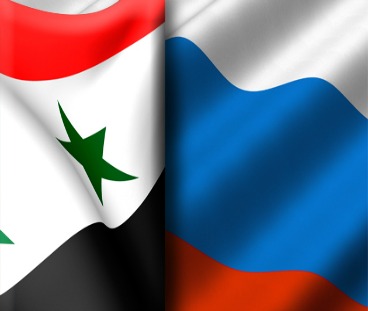Mr. President, the Helsinki Commission, which I chair, held a hearing last week that examined the close relationship between Russian Federation and Syria. The Commission heard testimony detailing their intricate financial and military dealings that began in the earliest days of the Cold War and continue to this day. This relationship allows Syria to continue to support numerous terrorist groups, groups that have terrorized Lebanon for the past three decades and fuel the insurgency in Iraq. In addition, we heard details about Syria’s support of terrorist organizations who operate around the world. Finally, we heard from both Lebanese and Syrians committed to freedom and democracy who have become victims of the Assad regime and are now languishing in the prison cells of Damascus.
The Commission’s concern regarding Russia’s involvement with Syria–a country that has been listed as a state sponsor of terrorism since 1979 by the State Department–rises from the Helsinki commitments that Russia has freely accepted as a participating State of the Organization for Cooperation and Security in Europe OSCE. The OSCE Charter on Preventing and Combating Terrorism was agreed to at the Porto Ministerial in 2002. Russia then committed to refrain from instigating or providing active or passive support or assistance to, or otherwise sponsoring terrorist acts in another state. Russia also committed to reducing the risk of terrorists gaining access to weapons and materials of mass destruction and their means of delivery.
Russia’s support for the terrorist regime in Damascus flies in the face of these commitments. Russia is an active enabler of the Assad regime, whose Ba’ath Party was described by one of our witnesses as the richest terrorist organization in the region. The Syrian regime has received untold amounts of military hardware, much of which are currently being used by terrorists in Iraq against our American troops and our allies. Additionally, Syrian intelligence supports terrorist units in Iraq, composed not only of Syrians, but including Egyptians, Sudanese, Moroccans, and other Islamic mujahidin.
Even more alarming is Russia’s plan to sell an unknown number of Igla SA-18 shoulder-held missiles to Syria. Such a sale to this terrorist state is more than criminal. This sale will put in the hands of terrorists some of the most sophisticated shoulder-held missiles in the Russian inventory, and increases the likelihood that they will get into the arsenals of other terrorist organizations around the world. Despite Russia’s denials, indicators are that this sale will go forward soon, putting at risk every airline flight, every military flight, with the potential for massive loss of life and the shutting down of modern transportation around the world.
We must focus on the fact that, while there is no apparent direct Russian involvement in Iraq, this direct support of Syrian military and intelligence operations, coupled with Syria’s support for Hezbollah in Lebanon and the long list of evil deeds coming out of Damascus, cast Russia as a suspicious party to these terrorist activities. We should not sit idly by and allow this to transpire without comment. We must call upon President Bush and Secretary Rice to reiterate U.S. demands that Russia disengage from its support of Syria, a state sponsor of terrorism. It is not enough to stop the sale of the missiles. Complete cessation of financial and military support to this rogue regime is necessary.
On the eve of the Helsinki Commission hearing, a courageous group of human rights activists and pro-democracy reformists held a demonstration in Damascus, a daring display of dissent quickly broken up by the security forces. One of the protesters held up at banner that read: “Freedom for Prisoners of Opinion and Conscience.” According to the Syrian Human Rights Committee, the Assad regime in Damascus has executed nearly 17,000 Syrian and Lebanese prisoners. Additionally, there are over 600 prisoners of conscience in Syrian jails, champions of human rights, accountability and transparency who are still languishing under horrible conditions.
I would like to highlight a few of these prisoners of conscience whose names were submitted to us by one of the witnesses and call for their immediate release: Riad Seif, member of parliament; Aref Dalilah, economist; Maamun al-Homsi, member of parliament; Abdul Aziz al-Khayer, physician; Habib Issa, lawyer; Walid al-Bounni, physician; Mohammad Bashir al-Arab, student leader and doctor; Muhanad al-Debs, student leader; Mahmoud Ammo, activist; Mahmoud Abou Sader, activist; Mazid Ali Al-Terkawi, businessman; and Fawaz Tello, engineer.
I was pleased to hear of Syria’s promise to a U.N. envoy to withdraw its troops and intelligence agents from Lebanon, but as the counter-demonstrations yesterday against Syria demanded, Damascus must follow through with actions as soon as possible. I am hoping that details of the withdrawal plan from U.N. envoy Terje Roed-Larsen after his talks with Syrian President Bashar Assad and Lebanese President Emile Lahoud will allow the people of Lebanon to hold their parliamentary elections in May without any interference from the Syrians and to do so in a manner that is free, timely, and transparent.
What would be unacceptable is the kind of warning issued by Prime Minister-designate Omar Karami that polls may have to be postponed if the country’s political opposition fails to enter a dialogue with the government. Such an effort will surely ignite the kind of violence that the Lebanese people have been yearning for so many years to avoid.
It is time for the international community to lend support for the slogan that defines the people’s revolution in Lebanon and in the region: “Kifaya,” which means “enough.” Let’s listen to what the people in Lebanon are saying for what they are saying is now being heard not only in Beirut but in Damascus, in Cairo, and in Riyadh: enough of autocrats, enough of the corruption, and enough of the repression.






